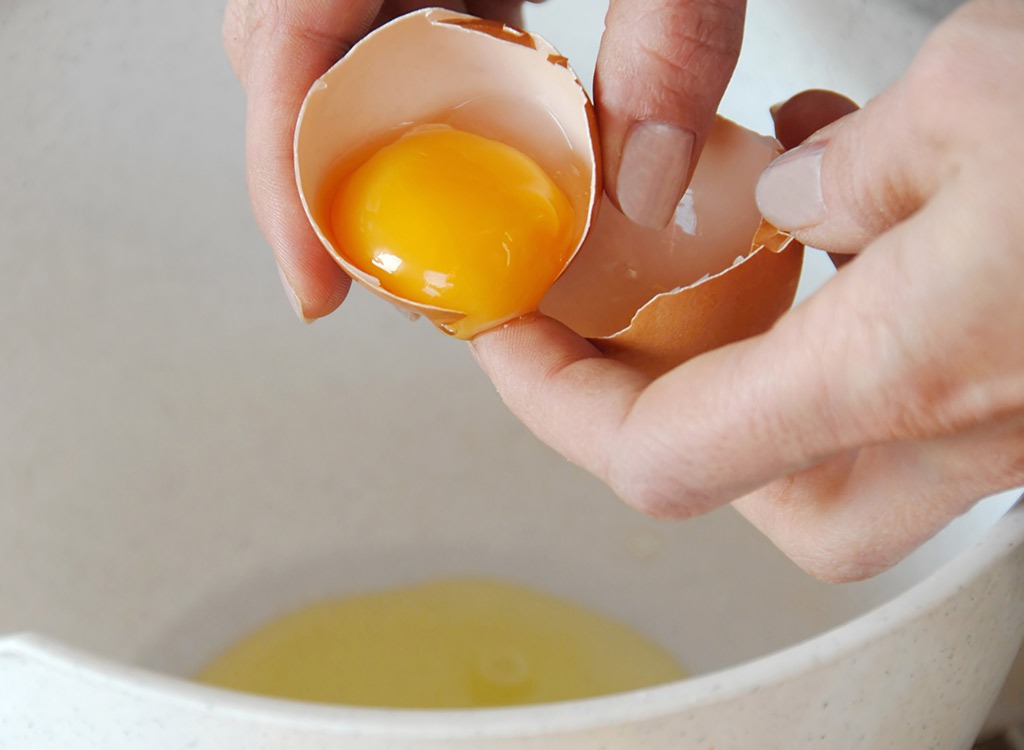8 ‘Healthy’ Swaps That Aren’t Really Better for You

Your efforts are admirable. Unfortunately, they may not actually be more beneficial for your body. Turns out, these 8 seemingly “healthier” swaps aren’t any better for you than the original.
Low-Fat Dairy for Full-Fat
While full-fat dairy packs more calories, it’s also more filling. That may help explain why a 2013 study review in the European Journal of Nutrition found that people who eat the fatty stuff are less likely to suffer from obesity than those who try and skip the calories with low-fat dairy. The study authors also found no ties between full-fat dairy and heart disease or diabetes. Ironically, some acids in milk fat—ones you don’t get from zero-fat varieties—may crank up your body’s calorie-burning centers, says study coauthor Mario Kratz, Ph.D., an epidemiologist at the University of Washington.
Turkey Burgers for Beef
Turkey is generally leaner than beef. But when it comes to burgers, it depends on the particular cut of meat, says Manuel Villacorta, M.S., R.D., author of Whole Body Reboot. The ground turkey at your supermarket may contain the dark-meat parts of the bird, which can bloat its fat content up to 20 percent, he says. The tradeoff gets worse when you’re dining out: Turkey dries out more easily than beef. So restaurant chefs tend to pack their turkey burgers with fat and condiments in order to make them flavorful, Villacorta explains. If you’re committed to turkey, make sure what you’re getting from the store is really the lean stuff.
Reduced-Fat Peanut Butter for Regular
Check out the nutrition labels on jars of regular and reduced-fat peanut butter. You’ll see a few differences: While the reduced-fat PB has—surprise!—less fat, it also has more sugar and salt. Now consider that the fat in PB is the healthful, monosaturated kind that research shows lowers your sensitivity to insulin. “You’re really just trading healthy fat for sugar,” Villacorta says.
E-Cigs for Tobacco Cigarettes
Old-school cigarettes are terrible for you, obviously. But don’t buy into the narrative that electronic cigarettes are “just water vapor.” That vapor contains nicotine and “flavorant chemicals,” says David Peyton, Ph.D., a chemist at Portland State University. Peyton’s research shows when you “vape,” you’re also sucking in chemical agents that release formaldehyde, a known cancer-causing chemical. E-cigs are newer; whether they’re any healthier is far from determined, Peyton suggests.
Diet Soda for Regular
Diet soda has zero calories, so it must be better for you than regular cola, right? That assumption has been blown apart by a wave of recent scientific studies. Consuming a lot of diet soda can nearly double your risk of becoming overweight or obese, shows a report in Obesity. How? Diet soda dulls your brain’s reaction to sweet flavors, which screws with your metabolism and may lead you to eat more unhealthy snack and dessert foods, suggests another study from San Diego State University.
Antibacterial Soap for Regular
Believe it or not, there’s no evidence antibacterial soap protects you from germs better than regular soap. A University of Michigan study found no drop in infectious disease rates among families who used the antibacterial stuff. On the other hand, some experts are worried antibacterial soap may put your health at risk by wiping out skin bacteria that protects you from disease.
Egg Whites for Whole Eggs
The whites have fewer calories, but they’re also short on pretty much everything that makes an egg good for you. Yolks are a great source of brain health-supporting choline and antioxidants, says Mike Roussell, Ph.D., Shape’s nutrition expert. The yolks also contain vitamin D, zinc, folate, iron and several other vitamins your body needs (which the whites don’t have), according to the USDA. In fact, a recent study found zero health benefits among people who ate whites instead of whole eggs. If you’re looking for an easy way to cut calories, make an omelet with one whole egg and a couple egg whites. That way you don’t miss out on the nutritious yolk entirely.
Endurance Runs for Shorter Jogs
People who run at an easy pace for an hour or two a week enjoy a big drop in mortality risk, shows a new study from the U.S. and Denmark. But hardcore runners—those who pound pavement at a moderate or fast pace for more than four hours a week—die at rates on par with people who don’t exercise at all, the same study reports. Too much strenuous physical activity (and pretty much all running is strenuous) can cause unhealthy changes to your heart, the study authors say. While this certainly doesn’t mean sitting on the couch is healthier than training for a marathon, it does mean that if you aren’t naturally driven to pound the pavement for hours, stick to your short runs guilt-free.
Courtesy of Shape.com








